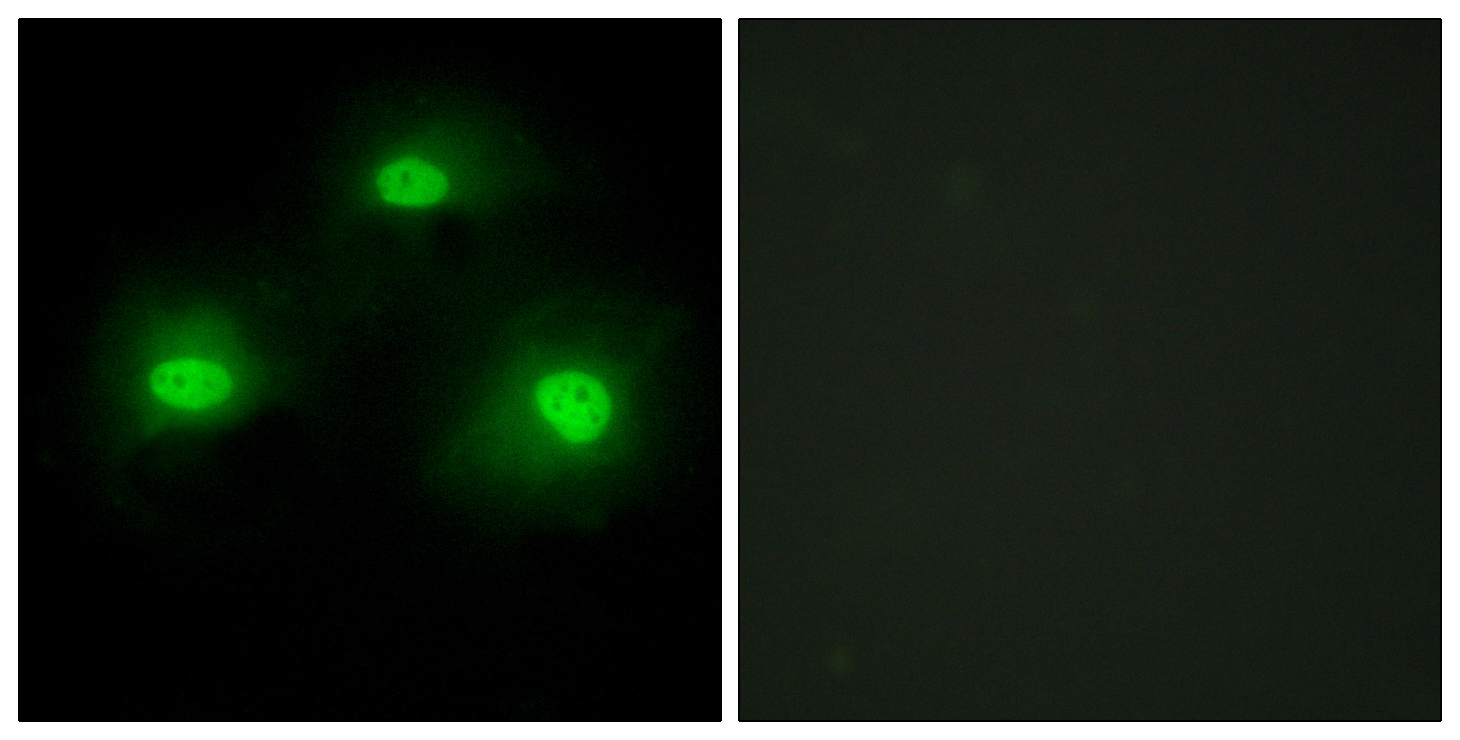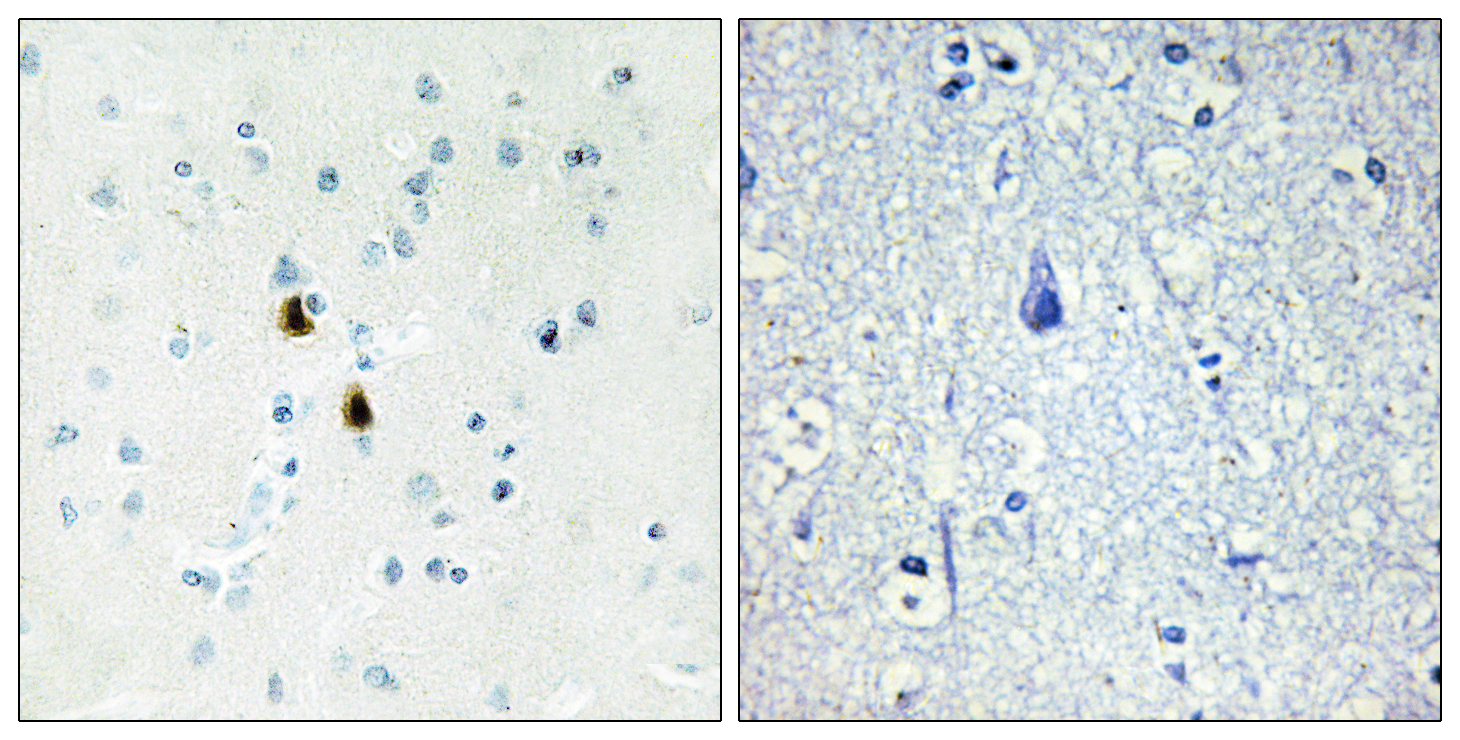Pki α Polyclonal Antibody
- 货号:YT3775
- 应用:IHC;IF;ELISA
- 种属:Human;Mouse;Rat
- 蛋白名称:
- cAMP-dependent protein kinase inhibitor alpha
- 免疫原:
- The antiserum was produced against synthesized peptide derived from human IPKA. AA range:10-59
- 特异性:
- Pki α Polyclonal Antibody detects endogenous levels of Pki α protein.
- 组成:
- Liquid in PBS containing 50% glycerol, 0.5% BSA and 0.02% sodium azide.
- 来源:
- Polyclonal, Rabbit,IgG
- 稀释:
- IHC 1:100 - 1:300. IF 1:200 - 1:1000. ELISA: 1:20000. Not yet tested in other applications.
- 纯化工艺:
- The antibody was affinity-purified from rabbit antiserum by affinity-chromatography using epitope-specific immunogen.
- 储存:
- -15°C to -25°C/1 year(Do not lower than -25°C)
- 其他名称:
- PKIA;PRKACN1;cAMP-dependent protein kinase inhibitor alpha;PKI-alpha;cAMP-dependent protein kinase inhibitor; muscle/brain isoform
- 背景:
- The protein encoded by this gene is a member of the cAMP-dependent protein kinase (PKA) inhibitor family. This protein was demonstrated to interact with and inhibit the activities of both C alpha and C beta catalytic subunits of the PKA. Alternatively spliced transcript variants encoding the same protein have been reported. [provided by RefSeq, Jul 2008],
- 功能:
- function:Extremely potent competitive inhibitor of cAMP-dependent protein kinase activity, this protein interacts with the catalytic subunit of the enzyme after the cAMP-induced dissociation of its regulatory chains.,miscellaneous:The inhibitory site contains regions very similar to the hinge regions (sites that directly interact with the enzyme active site) and "pseudosubstrate site" of the regulatory chains; but, unlike these chains, PKI does not contain cAMP-binding sites. The arginine residues within the inhibitory site are essential for inhibition and recognition of the enzyme active site.,similarity:Belongs to the PKI family.,

- Immunofluorescence analysis of HeLa cells, using IPKA Antibody. The picture on the right is blocked with the synthesized peptide.

- Immunohistochemistry analysis of paraffin-embedded human brain tissue, using IPKA Antibody. The picture on the right is blocked with the synthesized peptide.




